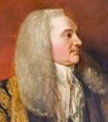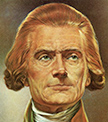| |
Date |
Event(s) |
| 1 | 1721 | - 4 Apr 1721—11 Feb 1742: Sir Robert Walpole, 1st UK Prime Minister (Whig)

Sir Robert Walpole
|
| 2 | 1732 | - 7 Dec 1732: Covent Garden Opera House opens
|
| 3 | 1733 | - 1733: Excise crisis: Sir Robert Walpole wanted to add excise tax to tobacco and wine
- 1733: Law forbidding the use of Latin in parish registers generally obeyed
- 1733: John Kay invents the flying shuttle, revolutionised the weaving industry
|
| 4 | 1734 | - 1734: Kent's Directory published
|
| 5 | 1737 | - 1737: Licensing Act restricts the number of London theatres and subects plays to censorship
of the Lord Chamberlain (till 1950s)
|
| 6 | 1738 | - 24 May 1738: John Wesley has his conversion experience
|
| 7 | 1739 | - 1739: Wesley and Whitefield commence great Methodist revival
- 7 Apr 1739: Dick Turpin, highwayman, hanged at York
- 23 Oct 1739: War of Jenkins' Ear starts: Robert Walpole reluctantly declares war on Spain
|
| 8 | 1741 | - 1741: Benjamin Ingham founded the Moravian Methodists or Inghamites
|
| 9 | 1742 | |
| 10 | 1743 | - 16 Jun 1743: (June 27 in Gregorian calendar): Battle of Dettingen
- 27 Aug 1743—6 Mar 1754: Henry Pelham, UK Prime Minister (Whig)

Henry Pelham
|
| 11 | 1744 | - 1744: Tune 'God Save the King' makes its appearance
|
| 12 | 1745 | - 1745: Jacobite rebellion in Scotland ('The Forty-five')
- 19 Aug 1745: Bonnie Prince Charlie (The Young Pretender) lands in the western Highlands
|
| 13 | 1746 | - 16 Apr 1746: Battle of Culloden
|
| 14 | 1747 | - 1747: Abolition of Heritable Jurisdictions in Scotland
- 1747: Act for Pacification of the Highlands
|
| 15 | 1749 | - 1749: Windsor, Ontario
An agricultural settlement is founded in what is now Windsor, Ontario
- 1749: Halifax, Canada
Halifax is founded
- 27 Apr 1749: First performance of Handel's Music for the Royal Fireworks (in Green Park,
London)
|
| 16 | 1750 | - 1750: Canada,German
German Settlers arrive in Halifax
- Feb 1750: Series of earthquakes in London and the Home Counties cause panic with
predictions of an apocalypse (Feb/Mar)
- 16 Nov 1750: Original Westminster Bridge opened (replaced in 1862 due to subsidence)
|
| 17 | 1751 | - 1751: Halifax, Printing
Bartholomew Green established Canada'a first printing press in Halifax
- Mar 1751: Chesterfield's Calendar Act passed
|
| 18 | 1752 | - 1752: Benjamin Franklin invents the lightning conductor
- 1 Jan 1752: Beginning of the year 1752 [Scotland had adopted January as the start of the year
in 1600, and some other countries in Europe had adopted the Gregorian calendar as early as
1582]
- 3 Sep 1752: Julian Calendar dropped and Gregorian Calendar adopted in England and
Scotland, making this Sep 14
|
| 19 | 1753 | - 1753: Private collection of Sir Hans Sloane forms the basis of the British Museum
- 1 May 1753: Publication of "Species Plantarum" by Linnaeus, and the formal start date of plant
taxonomy
|
| 20 | 1754 | - 1754: Hardwicke Act (1753): Banns to be called, and Printed Marriage Register forms to be
used
- 1754: In the General Election, the Cow Inn at Haslemere, Surrey caused a national scandal by
subdividing the freehold to create eight votes instead of one
- 1754: First British troops not belonging to the East India Company despatched to India
- 1754: The French and Indian War
- 16 Mar 1754—16 Nov 1756: Thomas Pelham-Holles, 1st Duke of Newcastle, UK Prime Minister (Whig)

Thomas Pelham-Holles, 1st Duke of Newcastle
|
| 21 | 1755 | - 1755: Publication of "Dictionary of the English Language" by Dr Samuel Johnson
- 1755: Period of canal construction began in Britain (till 1827)
- 1755: The expulsion of the French Canadians by the British
- 1755: Canada, Post Office
The first Post Office is opened in Halifax
- 2 Dec 1755: Second Eddystone Lighthouse destroyed by fire
|
| 22 | 1756 | - 15 May 1756: The Seven Years War with France (Pitt's trade war) begins
- Jun 1756: Black Hole of Calcutta
- 16 Nov 1756—25 Jun 1757: William Cavendish, Duke of Devonshire, UK Prime Minister (Whig)

William Cavendish Duke of Devonshire
|
| 23 | 1757 | - 1757: The foundation laid for the Empire of India
- 1757: Canada
Henry Evans is the first architect in English Canada
- 14 Mar 1757: Admiral Byng shot at Portsmouth for failing to relieve Minorca
- 23 Jun 1757: The Nawab of Bengal tries to expel the British, but is defeated at the battle of
Plassey (Palashi, June 23)
- 2 Jul 1757—26 May 1762: Thomas Pelham-Holles, 1st Duke of Newcastle, UK Prime Minister (Whig)

Thomas Pelham-Holles, 1st Duke of Newcastle
|
| 24 | 1758 | - 1758: India stops being merely a commercial venture
- 2 Oct 1758: Canada Parliament
First Parliament elected in Canada
|
| 25 | 1759 | - 1759: Wesley builds 356 Methodist chapels
- 15 Jan 1759: British Museum opens to the public in London
- 16 Oct 1759: Third Eddystone Lighthouse (John Smeaton's) completed
|
| 26 | 1760 | - 1760: Carron Iron Works in operation in Scotland
- 5 May 1760: First use of hangman's drop
- 25 Oct 1760: George II dies
|
| 27 | 1761 | - 16 Jan 1761: British capture Pondicherry, India from the French
|
| 28 | 1762 | - 1762: Cigars introduced into Britain from Cuba
- 26 May 1762—8 Apr 1763: John Stuart, 3rd Earl of Bute, UK Prime Minister (Tory)

John Stuart, 3rd Earl of Bute
|
| 29 | 1763 | - 1763: Treaty of Paris
- 16 Apr 1763—13 Jul 1765: George Grenville, UK Prime Minister (Whig)

George Grenville
|
| 30 | 1764 | - 1764: Lloyd's Register of shipping first prepared
- 1764: Practice of numbering houses introduced to London
- 1764: James Hargeaves invents the Spinning Jenny (but destroyed 1768)
- 1764: Mozart produces his first symphony at age eight
|
| 31 | 1765 | |
| 32 | 1766 | - 1766: Start of 'composite' national records on rainfall in the UK
- 30 Jul 1766—14 Oct 1768: William Pitt 'The Elder', 1st Earl of Chatham, UK Prime Minister (Whig)

William Pitt 'The Elder', 1st Earl of Chatham
- 5 Dec 1766: Christie's auction house founded in London by James Christie
|
| 33 | 1767 | - 1767: Newcomen's steam pumping engine perfected by James Watt
|
| 34 | 1768 | - 9 Jan 1768: Philip Astley starts his circus in London
- 14 Oct 1768—28 Jan 1770: Augustus Henry Fitzroy, 3rd Duke of Grafton, UK Prime Minister (Whig)

Augustus Henry Fitzroy, 3rd Duke of Grafton
- 6 Dec 1768: The first edition of the "Encyclopaedia Britannica" published in Edinburgh by
William Smellie
|
| 35 | 1769 | - 1769: Arkwright invents water frame (textile production)
- 1769: Capt James Cook maps the coast of New Zealand
- 6 Sep 1769: David Garrick organises first Shakespeare festival at Stratford-upon-Avon
|
| 36 | 1770 | - 1770: Clyde Trust created to convert the River Clyde, then an insignificant river, into a major
thoroughfare for maritime communications
- 28 Jan 1770—22 Mar 1782: Lord Frederick North, UK Prime Minister (Whig)

Lord Frederick North
- 28 Apr 1770: Capt James Cook lands in Australia (Botany Bay)
|
| 37 | 1771 | - 1771: Right to report Parliamentary debates established in England
|
| 38 | 1772 | - 1772: First Travellers' Cheques issued by the London Credit Exchange Company
- 1772: "Morning Post" first published (until 1937)
- 14 May 1772: Judge Mansfield rules that there is no legal basis for slavery in England
|
| 39 | 1774 | - 13 Sep 1774: Cook arrives on Easter Island
|
| 40 | 1775 | - 1 Jan 1775: The first Loyalists arrive in Canada
- 18 Apr 1775: American Revolutionary War
- 19 Apr 1775: Battle of Lexington: first action in American War of Independence (1775
|
| 41 | 1776 | - 1776: Somerset House in London becomes the repository of records of population
- 1776: Watt and Boulton produce their first commercial steam engine
- 4 Jul 1776: American Declaration of Independence
- 7 Sep 1776: First attack on a warship by a submarine
|
| 42 | 1777 | - 1777: Samuel Miller of Southampton patents the circular saw.
|
| 43 | 1779 | - 1779: Marc Isambard Brunel opens the first steamdriven sawmill at Chatham Dockyard in Kent
- 1779: First iron bridge built, over the Severn by John Wilkinson
- 1779: First Spinning Mills operational in Scotland
- 14 Feb 1779: Capt James Cook killed on Hawaii
- 23 Sep 1779: Naval engagement between Britain and USA off Flamborough Head
|
| 44 | 1780 | - 1780: Male Servants Tax
- 1780: The English Reform Movement
- 1780: Fountain pen invented
- 1780: About this time the word 'Quiz' entered the language, said to have been invented as a
wager by Mr Daly, a Dublin theatre manager
- 1780: Canada Quakers
The underground railroad is founded by Quakers who help slaves escape to Canada
- 4 May 1780: First Derby run at Epsom (some say 2nd June)
|
| 45 | 1782 | |
| 46 | 1783 | - 1783: Duty payable on Parish Register entries (3d per entry
- 1783: Canada German
Pennsylvania Germans immigrate to southwestern Ontario
- 2 Apr 1783—19 Dec 1783: William Bentinck Duke of Portland, UK Prime Minister (Whig)

William Bentinck Duke of Portland
- 3 Sep 1783: Treaty of Versailles (Britain/US)
- 3 Nov 1783: Last public execution at Tyburn in London (John Austin, a highwayman)
- 19 Dec 1783—14 Mar 1801: William Pitt 'The Younger', UK Prime Minister (Tory)

William Pitt the Younger
|
| 47 | 1784 | - 1784: Pitt's India Act
- 1784: Wesley breaks with the Church of England
- 1784: First golf club founded at St Andrews
- 1784: Invention of threshing machine by Andrew Meikle
- 2 Aug 1784: First mail coaches in England (4pm Bristol / 8am London)
|
| 48 | 1785 | - 1785: Sunday School Society founded to educate poor children (by 1851, enrols more than 2
million)
- 1785: Northwest Indian War
- 1 Jan 1785: John Walter publishes first edition of The Times (called The Daily Universal
Register for 3 years)
|
| 49 | 1787 | - 1787: MCC (Marylebone Cricket Club) established at Thomas Lord's ground in London
|
| 50 | 1788 | - 1788: First steamboat demonstrated in Scotland
- 1788: Law passed requiring that chimney sweepers be a minimum of 8 years old (not
enforced)
- 1788: First slave carrying act, the Dolben Act of 1788, regulates the slave trade
- 1788: King George III's mental illness occasions the Regency Crisis
- 1788: Gibbon completes "Decline and Fall of the Roman Empire"
- 26 Jan 1788: First convicts (and free settlers) arrive in New South Wales (left Portsmouth 13
May 1787)
- 26 Jan 1788: Australia New South Wales
New South Wales colony is founded by the British as a penal colony
|
| 51 | 1789 | - 28 Apr 1789: Mutiny on HMS Bounty
- 30 Apr 1789—3 Mar 1797: George Washington, 1st President of the United States

George Washington
- 27 Dec 1789: Canada stagecoach
Canada's first stage coach service is established between Queenston and Fort Erie
|
| 52 | 1790 | - 1790: Forth and Clyde Canal opened in Scotland
- 1790: Australian colony
Australian colony experiences a food shortage
|
| 53 | 1791 | - 1791: John Bell, printer, abandons the "long s" (the "s" that looks like an "f")
- 1791: Establishment of the Ordnance Survey of Great Britain
- 1791: Canada
Lower Canada (Quebec) and Upper Canada (Ontario) are formed
- 4 Dec 1791: First publication of The Observer
|
| 54 | 1792 | - 1792: Repression in Britain (restrictions on freedom of the press)
- 1792: Boyle's Street Directory published
- 1792: Coal-gas lighting invented by William Murdock, an Ayrshire Scot
- 1 Oct 1792: Introduction of Money Orders in Britain
- 1 Dec 1792: King's Proclamation drawing out the British militia
|
| 55 | 1793 | - 11 Feb 1793: Britain declares war on France (1793-1802)
|
| 56 | 1794 | - 1794: Abolition of Parish Register duties
- 6 Oct 1794: The prosecutor for Britain, Lord Justice Eyre, charges reformers with High
Treason
|
| 57 | 1795 | - 1795: The Famine Year
- 1795: Foundation of the Orange Order
- 1795: Speenhamland Act proclaims that the Parish is responsible for bringing up the labourer's
wage to subsistence level
- 1795: Pitt and Grenville introduce "The Gagging Acts" or "Two Bills" (the Seditious Meetings and Treasonable Practices Bills)
- 1795: Consumption of lime juice made compulsory in Royal Navy
|
| 58 | 1796 | - 1796: Pitt's "Reign of Terror": More treason trials
- 1796: Legacy Tax on sums over
- 14 May 1796: Dr Edward Jenner gave first vaccination for smallpox in England
|
| 59 | 1797 | - 1797: England in Crisis, Bank of England suspends cash payments
- 1797: Mutinies in the British Navy at Spithead and Nore
- 1797: Tax on newspapers (including cheap, topical journals) increased to repress radical
publications
- 1797: The first copper pennies were produced ('cartwheels') by application of steam power to
the coining press
- 22 Feb 1797: French invade Fishguard, Wales; last time UK invaded; all captured 2 days later
- 4 Mar 1797—3 Mar 1801: John Adams, 2nd President of the United States

John Adams
- 18 Jun 1797: Canada Mail
The first mail service between Canada and the United States is established
|
| 60 | 1798 | - 1798: First planned human experiment with vaccination, to test theories of Edward Jenner
- 9 Jan 1798: Franco-American War
- Feb 1798: The Irish Rebellion; 100,000 peasants revolt; approximately 25,000 die
- 1 Aug 1798: Battle of the Nile (won by Nelson)
|
| 61 | 1799 | - 1799: Foundation of Royal Military College Sandhurst by the Duke of York
- 1799: Foundation of the Royal Institution of Great Britain
- 9 Jan 1799: Pitt brings in 10% income tax, as a wartime financial measure
- 12 Jul 1799: 'Combination Laws' in Britain against political associations and combinations
- 15 Jul 1799: "Rosetta Stone" discovered in Egypt, made possible the deciphering (in 1822) of Ancient Egyptian hieroglyphics
|
| 62 | 1800 | - 1800: Electric light first produced by Sir Humphrey Davy
- 1800: Use of high pressure steam pioneered by Richard Trevithick (1771-1833)
- 1800: Royal College of Surgeons founded
- 1800: Herschel discovers infra-red light
- 1800: Volta makes first electrical battery
- 2 Jul 1800: Parliamentary union of Great Britain and Ireland
|
| 63 | 1801 | - 1801: Grand Union Canal opens in England
- 1801: Elgin Marbles brought from Athens to London
- 1 Jan 1801: Union Jack becomes the official British flag
- 4 Mar 1801—3 Mar 1809: Thomas Jefferson, 3rd President of the United States

Thomas Jefferson
- 10 Mar 1801: First census puts the population of England and Wales at 9,168,000. Population of Britain nearly 11 million (75% rural)
- 17 Mar 1801—10 May 1804: Henry Addington, 1st Viscount Sidmouth, UK Prime Minister (Tory)

Viscount Sidmouth
- 1 Apr 1801: First Barbary War
- 24 Dec 1801: Richard Trevithick built the first self-propelled passenger carrying road loco
|
| 64 | 1802 | - 25 Mar 1802: Treaty of Amiens signed by Britain, France, Spain, and the Netherlands
|
| 65 | 1803 | - 1803: Poaching made a Capital offence in England if capture resisted
- 1803: Richard Trevithick built another steam carriage and ran it in London as the first
self-propelled vehicle in the capital and the first London bus
- 1803: Semaphore signalling perfected by Admiral Popham
- 30 Apr 1803: Louisiana Purchase: Napoleon sells French possessions in America to United States
- 12 May 1803: Peace of Amiens ends
- 23 Jul 1803: First public railway opens (Surrey Iron Railway, 9 miles from Wandsworth to
Croydon, horse-drawn)
|































